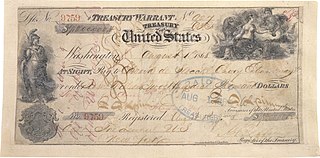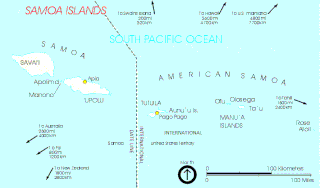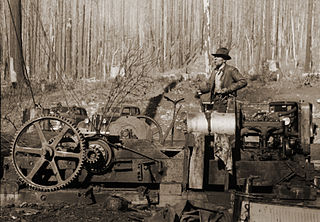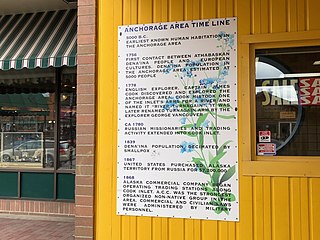Related Research Articles
The Alaska Native Claims Settlement Act (ANCSA) was signed into law by President Richard Nixon on December 18, 1971, constituting what is still the largest land claims settlement in United States history. ANCSA was intended to resolve long-standing issues surrounding aboriginal land claims in Alaska, as well as to stimulate economic development throughout Alaska.

The Alaska Purchase was the purchase of Alaska from the Russian Empire by the United States for a sum of $7.2 million in 1867. On May 15 of that year, the United States Senate ratified a bilateral treaty that had been signed on March 30, and American sovereignty became legally effective across the territory on October 18.

The University of Alaska Anchorage (UAA) is a public university in Anchorage, Alaska, United States. UAA also administers four community campuses spread across Southcentral Alaska: Kenai Peninsula College, Kodiak College, Matanuska–Susitna College, and Prince William Sound College. Between the community campuses and the main Anchorage campus, roughly 15,000 undergraduate, graduate, and professional students are currently enrolled at UAA. It is Alaska's largest institution of higher learning and the largest university in the University of Alaska System.
Victoria Wyatt is an ethnographer and art historian specializing in Northwest Coast Native American art.

The UAA/APU Consortium Library is a joint library serving the University of Alaska Anchorage and Alaska Pacific University, established in 1973 and refurbished in 2004. According to self-reported statistics from 2016, the library has approximately 728,000 volumes on site and averages 12,000 visitors per week during the academic year. The library has the furthest north permanent Foucault pendulum in North America.
The Cascadia bioregion is the Pacific Northwest as defined through the watersheds of the Columbia, Fraser and Snake Rivers, as defined through the geology of the region. It extends for more than 2,500 miles (4,000 km) from the Copper River in Southern Alaska, to Cape Mendocino, approximately 200 miles north of San Francisco, and east as far as the Yellowstone Caldera and continental divide and contains 75 distinct ecoregions.

Edward Linnaeus Keithahn was an American museum curator and the author of a well known book on totem poles, Monuments in Cedar, published in 1945. According to WorldCat, the book is held in 725 libraries.

This is an English language bibliography of American Samoa and its geography, history, inhabitants, culture, biota, etc.

A gyppo or gypo logger is a logger who runs or works for a small-scale logging operation that is independent from an established sawmill or lumber company. The gyppo system is one of two main patterns of historical organization of logging labor in the Pacific Northwest United States, the other being the "company logger".

The following is a timeline of the history of the city of Anchorage, Alaska, United States.
Chinese Americans in the Pacific Northwest have been around since as early as the 1850s. Chinese Americans arrived in the Greater Seattle area in as early as 1851. Oregon had also seen an influx of Chinese Immigrants as early as 1851, because of mining opportunities. Idaho saw an influx of Chinese Immigrants in the late-19th century, and by 1870 saw a population of around 4,000 Chinese immigrants. The influx of Chinese immigrants in the Pacific Northwest and the rest of the Western United States led to retaliation by whites, leading to anti-Chinese sentiment in the United States. These sentiment then led to the Chinese Exclusion Act of 1882, which expelled many Chinese Americans in the Pacific Northwest. Chinese exclusion is also driven by the failure of restriction. The United States had passed the Chinese Exclusion Act of 1882 to slow immigration, and mend Sinophobia in the west. However, the enforcement of the exclusion act was lackluster. The United States Department of Treasury had found itself with no money to enforce this law. Thus, nullifying the purpose of the exclusion act. Additionally, under the Chinese Exclusion Act of 1882, Chinese people could migrate to the United States if they were return immigrants. Consequently, Chinese immigrants began claiming that they were return immigrants so that they could work in the United States. This also made the Chinese Exclusion Act 1882 useless. This led the United States government to pass the Scott Act of 1888. This excluded all Chinese immigration because it was cheaper, and it appeased the racial tensions in the west.
Robert N. Burr was an American historian. He was a professor of history at the University of California, Los Angeles (UCLA) from 1948 to 1987, where he established the Latin American Studies program and served as its chair department from 1973 to 1977. He was the author of four widely reviewed books about Latin America and the recipient of scholarly awards.

Ellen Ruth Rockwood was an American librarian and historian.
Dorothy Olga Johansen was an American historian of the Pacific Northwest.
W. Turrentine "Turpie" Jackson was an American professor of history, specializing in Western U.S. history.
Oscar Osburn Winther was a history professor, specializing in the history of the western United States. He was the president of the Western History Association from 1963 to 1964 and the president of the Oral History Association from 1969 to 1970.

Past Imperfect: Facts, Fictions, and Fraud — American history from Bancroft and Parkman to Ambrose, Bellesiles, Ellis, and Goodwin is a 2004 non-fiction book, written by Peter Charles Hoffer, that covers the historiography of U.S. History in Part 1 and the controversies surrounding Stephen Ambrose, Michael Bellesiles, Joseph Ellis, and Doris Kearns Goodwin in Part 2. A second edition was released on July 3, 2007 in which the book was "revised and updated [and] edited with a new final chapter and conclusion."
We Shall Be All: A History of the Industrial Workers of the World is a 1969 history book about the Industrial Workers of the World by Melvyn Dubofsky.

The Pacific marten is a species of North American mammal, a member of the family Mustelidae. It is found throughout western North America.
References
- ↑ "Steve Haycox". Anchorage Daily News.
- 1 2 Burleson, Ken. "Getting to know history professor Steve Haycox | The Northern Light".
- ↑ "Alaskool". www.alaskool.org.
- 1 2 Reviews of Battleground Alaska:
- Sara Dant, Environmental History, JSTOR 45172490
- Brian Allen Drake, The American Historical Review, JSTOR 26576787
- Kathryn Morse, Western Historical Quarterly, JSTOR 26782884
- William H. Mullins, The Pacific Northwest Quarterly, JSTOR 44790769
- Andrew Stuhl, Pacific Historical Review, JSTOR 26419917
- Laura A. Watt, The Journal of American History, doi:10.1093/jahist/jax127, JSTOR 48548402
- 1 2 Reviews of Frigid Embrace:
- Michael Butt, H-Net Reviews,
- Terrence Cole, The Pacific Northwest Quarterly, JSTOR 40491693
- Sandra McDermott, The Public Historian, doi:10.1525/tph.2004.26.1.169, JSTOR 10.1525/tph.2004.26.1.169
- Deniel Nelson, Environmental History, doi:10.2307/3985729, JSTOR 3985729
- Hal Rothman, Oregon Historical Quarterly, JSTOR 20615373
- John S. Whitehead, Western Historical Quarterly, doi:10.2307/25047261, JSTOR 25047261
- ↑ Reviews of Alaska: An American Colony:
- Gordon B. Dodds, Pacific Historical Review, doi:10.1525/phr.2003.72.4.635
- Ted C. Hinckley, Western Historical Quarterly, doi:10.2307/25047314, JSTOR 25047314
- Kathryn Morse, Oregon Historical Quarterly, JSTOR 20615303
- Claus-M. Naske, The Pacific Northwest Quarterly, JSTOR 40491715
- ↑ Reviews of Melvin Ricks' Alaska Bibliography:
- Louis Flannery, Oregon Historical Quarterly, JSTOR 20613597
- Arthur E. Hippler, American Indian Quarterly, doi:10.2307/1183777, JSTOR 1183777
- Alan Edward Schorr, Western Historical Quarterly, doi:10.2307/967140, JSTOR 967140
- ↑ Review of An Alaska Anthology:
- Eric J. Karolak, Western Historical Quarterly, doi:10.2307/970925, JSTOR 970925
- ↑ Reviews of Enlightenment and Exploration in the North Pacific:
- William H. Adams, Historical Archaeology, JSTOR 25616762
- Herbert K. Beals, Oregon Historical Quarterly, JSTOR 20614944
- Daniel Clayton, Ecumene, JSTOR 44252055
- James R. Gibson, Pacific Historical Review, doi:10.2307/3641760, JSTOR 3641760
- Mott Greene, The Pacific Northwest Quarterly, JSTOR 40492476
- Ted C. Hinckley, Western Historical Quarterly, doi:10.2307/971348, JSTOR 971348